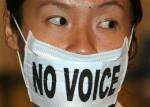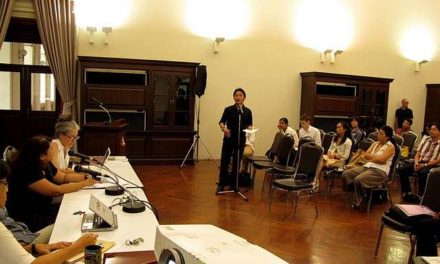
16 September 2006 Batam, Indonesia
The organizers of the International People’s Forum (IPF) in Batam, Indonesia boycotting the official events of the Annual Meetings of the International Monetary Fund (IMF) and World Bank in Singapore will continue this boycott despite the Singapore government’s September 15 press statement that it will now allow 22 of 27 officially blacklisted individuals to enter the country.
The Singapore government’s decision, “based on input by the International Monetary Fund (IMF) and World Bank (WB)”, is nothing but a desperate face-saving exercise for the Singapore government, World Bank, and IMF. We will not allow these three actors to cover up for actions which we consider to be egregious violations of democratic principles, and which have been met with universal condemnation. The statement fails to address the central concerns raised by the 163 civil society organizations around the world that signed a statement this week boycotting the IMF/World Bank meetings. Nor does the government’s decision acknowledge the enormous hardships faced by the many civil society representatives who were denied entry to Singapore.
The Singapore government’s decision is both too little and too late.
The government continues to ban five of the 27 individuals on their official blacklist from entry into Singapore. There has been no action regarding the numerous persons who are not on the official blacklist, but who were nonetheless detained, subjected to custodial interrogation and refused entry into Singapore. Over the past few days, reports have come in from over two dozen of these people about the high-handed and objectionable manner in which they were interrogated at Singapore’s Changi airport – despite the fact that many of them had no intention of attending the Annual Meetings. It is clear to us that there are several blacklists – official and unofficial – and that the government’s intention to curb the exercise of democracy and free speech within its territory extends beyond those on its official blacklist. In this regard we express our full solidarity with Singaporean civil society groups who experienced the same violations.
Neither the Singapore government nor the IMF/World Bank have publicly disclosed the names on the official blacklist. Nor have they provided an acceptable explanation for the violation of civil liberties resulting from their paranoia. The government’s decision to permit entry to 22 barred individuals is no indication of its commitment to transparency or democracy.
The democratic process has not been upheld even in this most recent development. No apology has been made to affected individuals. No restitution has been made for the hours spent in detention, for deportation, or for the re-routed or cancelled flights. Furthermore, the broader group of individuals who have been detained or refused entry have not yet been informed that they may now enter Singapore. In fact, the Singapore government made no attempt to communicate with any of the banned 27 directly. They continue to use the World Bank/IMF as their mouthpiece.
We feel that the World Bank/IMF will use these recent developments to burnish their “democratic” credentials by claiming that they were responsible for the Singapore government’s change of heart. However we all know that these developments would not have occurred had the World Bank/IMF not chosen Singapore as the venue for their Annual Meetings in order to shield themselves from protests and demonstrations. The two institutions cannot be absolved from their deep complicity in the violations of our civil and political rights.
For us, there is no other principled way to address these recent developments than to continue our boycott.







